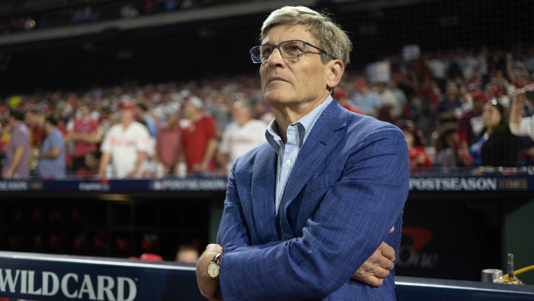Major League Baseball’s ownership class is a blighted place these days. To be sure, team owners in broad terms have operated cynically and lied about their finances in order to curry sympathy with fans and provide cover for their unwillingness to spend. Lately, though, the game has been afflicted by the likes of John Fisher in Oakland, Bob Nutting in Pittsburgh, the Dolans in Cleveland, Jerry Reinsdorf on the South Side of Chicago, and increasingly in recent years John Henry in Boston. These are owners who best embody the “portfolio holding” school of thought, in which the team basically functions as a source of passive income while also functioning as a market-beating long-term investment. Winning baseball games is at best a secondary objective or even a pleasing coincidence.
Even today, though, not all club owners fit this damaging model. The late Peter Seidler in San Diego was a pleasing exception. Steve Cohen of the New York Mets clearly cares about winning. Degrees of the same can be said about Texas Rangers ownership. Perhaps standing over all current owners is John Middleton, owner, managing general partner, and CEO of the Philadelphia Phillies. Middleton invests in player payroll at levels befitting a team with designs on the World Series, and he has for some time. He has a lead exec, Dave Dombrowski, who has long operated with that singular goal in mind. Middleton has empowered him to continue doing just that.
To be sure, a desire to win is probably the prime mover in the Middleton approach, and he also recognizes an essential truth about team ownership. Let him tell you himself what that truth is, via Matt Gelb’s profile of him in The Athletic:
“It’s remarkable how special this city is as a fan base. It’s why I keep telling everybody, it may be a privately-held business that we own, but it’s not a private organization. It’s a very public organization. It’s a stewardship. We have an obligation. We are accountable to the fans and to the city. If you don’t approach it that way, you shouldn’t be an owner, in my opinion.”
Whether most his guild prefers to acknowledge it, Major League Baseball teams require stewardship such as Middleton’s because they are at heart civic treasures, not index funds or ETFs or shares of crypto intended solely to enrich the possessor. To be sure, the possessor will indeed be enriched greatly for his or her efforts, but succeeding on the field is what matters most. Let’s highlight the end of that quote in isolation. Emphasis mine, but it can and should be yours, too:
“If you don’t approach it that way, you shouldn’t be an owner, in my opinion.”
Declare what he said in letters that burn forever.
Know that this is not idle talk from Middleton, who’s been controlling owner since 2015. Since signing superstar Bryce Harper to a $330 million free-agent pact prior to the 2019 season, here’s how Middleton’s Phillies, according to Cot’s/Baseball Prospectus, have ranked among all 30 MLB teams in Opening Day, active-roster payroll:
- 2019: 13th
- 2020: Seventh
- 2021: Fourth
- 2022: Fourth
- 2023: Fourth
- 2024: Fourth
When Middleton says the above, he doesn’t speak idly. The actions that matter most back up his words. This year’s Phillies model, in the running for best team in baseball, boasts six players (Harper, Trea Turner, Zack Wheeler, Aaron Nola, J.T. Realmuto, and Nick Castellanos) whom Middleton and company have signed to nine-figure free-agent pacts or extensions. Another pair, Kyle Schwarber and Taijuan Walker, signed deals worth more than $70 million. From the standpoint of owners, those are words put to action, all in the service of winning. It’s little wonder that fan enthusiasm is in abundance in Philly right about now and has been for a long time.
No, not every team has the resources of the Phillies, but, yes, every team should operate in philosophical terms like Middleton does. Otherwise, do what the man suggests and get out of the business.

